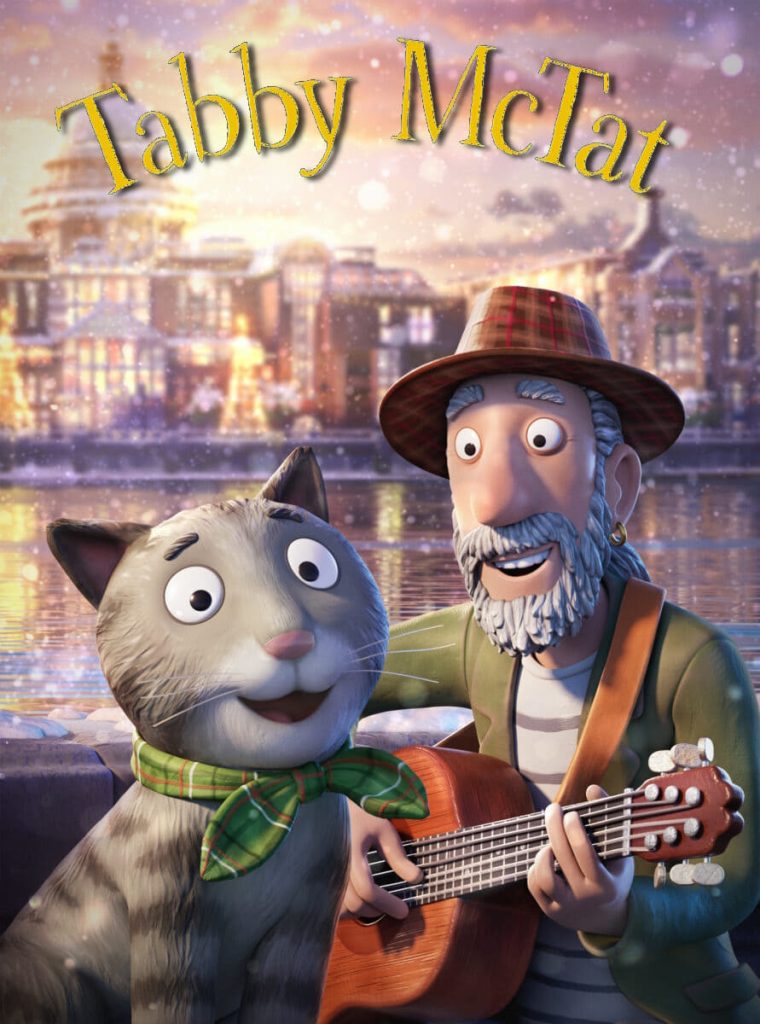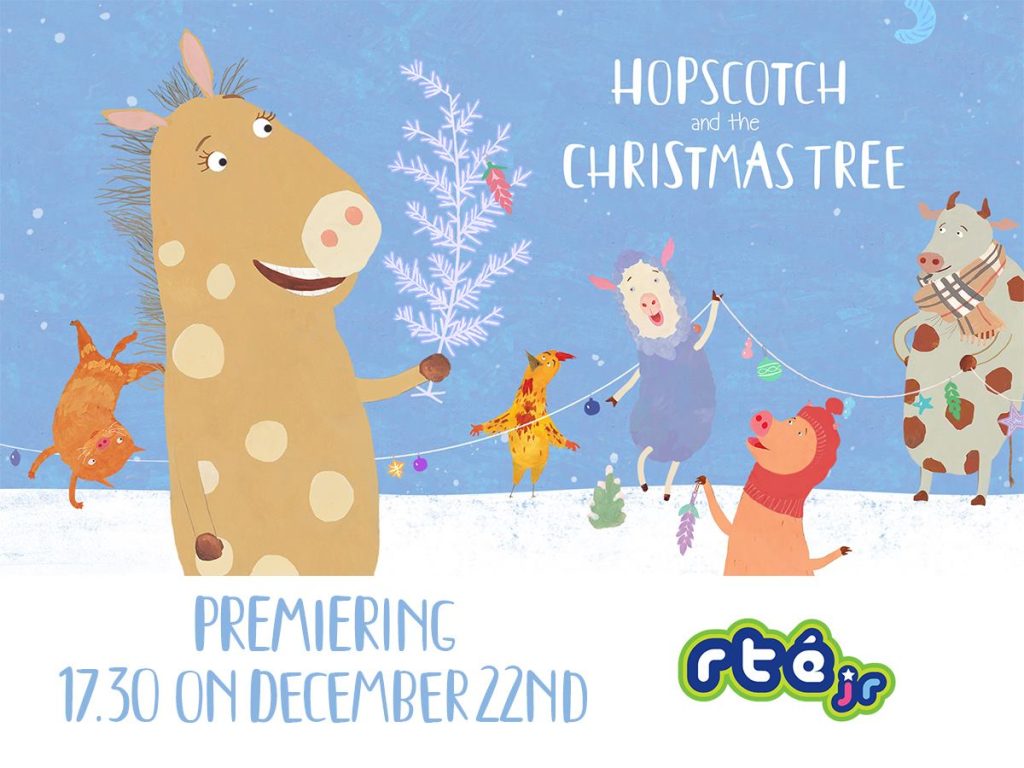Reader Question
Today I want to answer a question that I’m approached about quite often…
“I’ve written a picture book that I think would work well as an animated film. Where do I start?”
First off, This article isn’t just for picture book authors. It includes plenty of useful tips for anyone with a screenplay to sell. So, if you’re a screenwriter struggling to gain traction, read on!
How to Turn Your Picture Book into an Animated Film
Before I dive in with my suggestions, consider first these questions:
Has your picture book been published by a traditional publisher?

If so, that will help.
Talk to your publisher and agent if you have one. Ask them if they think it’s a good idea and whether they can help you figure out the next steps.
If they can’t help, follow the steps below. Before jumping into anything, get a second opinion. Ask others if they agree that your book would make a good animated film.
If it hasn’t been traditionally published, start by attempting this step.
Self-publishing is a great option. If you went this route, did it sell well?
If not, why not?
Was it due to a lack of marketing, on your part? If so, go back to the marketing piece and see if you can generate some more sales.
If you don’t manage to make many sales or get many positive reviews, despite a concerted effort, write another book and try again. Writing is hard and we often don’t get it right the first time.
(If you’re looking for some tips on writing a children’s picture book, check out my previous article).
Next, think about what you mean by an animated film
If you’re thinking big-budget feature-length animated Disney or Pixar film, that’s going to be incredibly tough to pull off, no matter who you are.
But does it need to be that?
Picture books, being short in length, are generally better suited to the suited to the short film format – up to about 30 minutes – but can be shorter too, which makes it easier and cheaper to achieve.
Do not underestimate how hard it is to make a feature film – especially an animated feature film.
There are lots of examples of lovely 30-minute animated specials – often released on the BBC (such as Tabby McTat) or Netflix (such as Robin Robin) over Christmas. So this can be a great length to aim for.

If your book has been traditionally published, or self-published and sold well, start reaching out to people who might be able to help.
It is in your best interests to think and act like a producer to get the animated film made.
Where NOT to start
Avoid starting by approaching large companies like the BBC, Pixar, Disney, or Aardman. Without existing connections or a track record, reaching the right people at these companies will be extremely challenging.
Instead, seek out collaborators who have more experience than you and some useful connections. They can help you develop your idea and eventually connect the project with the right animation studio or TV network.
Who do you need to approach?
The first key people you need to help make an animated film are generally speaking an Animation Producer, an Animation Director and an Animation Writer.
You will be able to find many of these people at all different levels on Linkedin.
So if you haven’t already, I highly recommend that you start by creating a solid Linkedin profile – this is an essential platform if you’re a screenwriter. You can read some tips about how to use Linkedin here.
By the way, if you need help figuring out how to navigate Linkedin, get in touch, as I can support you through this process in a Launchpad Session (or one of my other coaching packages).
How do you approach these people?
First start by connecting with them on Linkedin with a friendly ‘hello!’ Then, if they accept your offer to connect, try to get to know them on Linkedin. You could comment on their profile or ask about something they’ve worked on.
DON’T start by sending them a long message about yourself and your story.
SLOWLY warm up by getting to know each other first.
A long message out of the blue if they’ve never met you will be massively off-putting. So please don’t do it!
Once you have exchanged a few friendly messages, you can finally bring up the topic of your picture book, but keep it short and sweet.
You are gauging interest in the first instance. For example, you could ask for advice, or perhaps just let them know that you’re looking for potential collaborators on an animated short film, and ask if they’d like to know more.
Don’t give them anything until they show you that they want it. You’re basically inviting them to express their interest. And if they don’t express interest, that means they’re not the right person. No hard feelings, just keep looking.
It is a numbers game, you will need to reach out to many people, before you land on the right collaborators for your project. But this is not as hard as it sounds. As soon as you have your messaging right, just keep connecting and following up with people (using the same messaging each time). Do this on a weekly basis, when you have a bit of downtime from your writing.
I know all this from personal experience
Trust me, I got it wrong, before I got it right! So I know what I’m talking about!
Once your new contacts express interest, think about how to make yourself stand out.
- Does anything stand out about your picture book?
- How about you? Have you had many books published? What about awards? Have you won or been short-listed for anything? Perhaps you’ve done a notable writing course?
- Do you have a personal connection to the subject matter? If so, share that.
- Why do you think it should be turned into an animated film? Are there any other animated films that you could compare it to?
Then, keep going, keep going, keep going.
Don’t be put off if and when people don’t respond. Many won’t respond because they’ll be too busy. Or it simply won’t be for them, and they don’t have time to get back to you.
Don’t take it personally, and just keep trying. You need lots of resilience!
When you find people who are interested in collaborating, what next?
- Get to know them in person or on Zoom
- Look closely at their profile, check out their CV
- Watch their work and listen to what they say
- Think carefully about whether they are a good fit
- You don’t have to say yes to everyone
Before you agree to collaborate, you need to believe that this person can make this happen because making a film is a long and arduous process.
However, your potential collaborators don’t have to be at the top of the ladder. They can even be a recent graduate, if they are passionate, ambitious, energetic and have a track record of making good films at film school, for example.
How I know about this
I’m primarily a screenwriter. And for the last 7+ years I’ve focused on writing children’s animation. I developed a series called ‘Happy Go Hopscotch’, which was in development for a number of years with a talented producer and director. We got a lot of funding from various places, including Creative Europe and the Lithuanian Film Fund, and we pitched at high-profile events all over the world.
Whilst the series was in development, the team and I decided it might help us sell the series to broadcasters if we had a picture book. This was a tactical decision.
And so I wrote the picture book ‘Hopscotch and the Christmas Tree‘ which was published by Tiny Tree Books.
It turned out this did help
Thanks to the picture book, we immediately got interest from an Irish broadcaster (RTE Junior) who quickly commissioned us to make an animated Christmas Special based on my book. So I set about adapting it. (If you’d like to read about how to adapt a picture book into an animated film, you can find that article here).
The film went on to be broadcast on multiple channels and in cinemas across the world, and it was nominated for Best Animation and Best Film at the Irish Animation Awards.

I’m not a producer – I’m a writer – however, I acted like a producer to help make this happen. I didn’t produce the film by any stretch of the imagination, however, I was proactive about helping to make it happen. I reached out to people to try and bring a team together. Everything I talk about here, I did myself, including finding the initial producer and director who I collaborated with all the way through the whole process.
It was a thrilling experience, a lot of work, and a huge learning curve.
Since then I’ve gone on to write over 50 animated scripts for other people’s IP, including, most recently, a Paw Patrol spin-off called Rocky’s Garage. My first episode was released on YouTube in May 2024 and clocked up 1 million views within a month! I’m now developing another original animation series.
If you’re hoping someone else will take your picture book and turn it into an animated film, while you sit back and reap the rewards, the chances are it will never get off the ground. Making films is generally a huge, expensive, risky undertaking. But follow these steps and it might just fly!
DON’T STRUGGLE ALONE!
I love supporting writers with their –
- Writing * Mindset * and their Careers *
Find out more about my one-off super-charged Launchpad Sessions here.
Get feedback on your work
Or enlist me for some accountability to help you write a longer piece of work. 1:1 coaching is a lifesaver if you’re struggling to sit down and write.
FREE RESOURCES
The London Writers’ Meetup happens the 2nd Tuesday of every month at 7.30pm UK time – online. It’s a super friendly group. Come along if you’re stuck, feeling lost, or just want to hang out with other writers and talk about writing! You can ask us anything – share resources – set a writing goal – make writer friends – and come away feeling encouraged and inspired! I hope to see you there!
Also, if you’re struggling to make progress with your writing, consider doing a creative audit with the help of my FREE Writers’ Arc of Life tool.
Katy is a wonderful writing coach who offers a vast range of expertise. Her lessons are clear and precise and can help writers get through any difficulties they face, with confidence. She is also very knowledgeable in giving further advice and information to help writers further their careers.
Derek Moore

Thank you for this excellent article It was very helpful and informative.